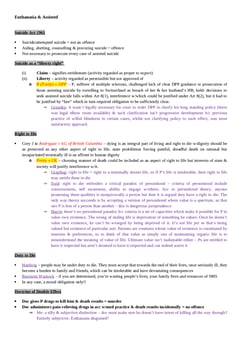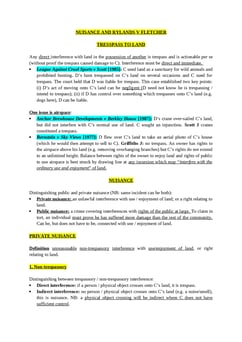McGhee v National Coal Board [1973] 1 WLR 1; [1972] 3 All ER 1008
Judgement for the case McGhee v National Coal Board
Table Of Contents
KEY POINTS
-
Negligence is a legal concept that refers to the failure to exercise reasonable care, resulting in harm or damage to others.
In various contexts, negligence can manifest in the workplace when employers or individuals fail to take necessary precautions to ensure the safety and well-being of employees.
A safe system of work is necessary in any occupational setting to minimize the risks associated with various tasks and activities.
Implementing and adhering to a comprehensive safe system of work helps prevent accidents, injuries, and other adverse events, fostering a secure environment for employees.
-
Washing facilities play a role in maintaining hygiene and preventing the spread of infections in workplaces.
In instances where these facilities are not provided, there is an increased risk of health issues, such as dermatitis, which can be contracted by workers exposed to hazardous materials or unsanitary conditions.
Dermatitis contracted by a workman in a brick kiln highlights the occupational health challenges that workers may face due to exposure to certain substances or working conditions.
Employers have a responsibility to assess and mitigate these risks, providing appropriate protective measures and medical support to affected individuals.
-
The absence of washing facilities represents a failure to meet basic hygiene standards in the workplace.
This not only poses a risk of diseases but also demonstrates a lack of consideration for the well-being of employees, potentially leading to legal consequences for the employer.
The concept of material contribution to injury is significant in legal discussions related to workplace accidents.
If the lack of washing facilities or other safety measures materially contributes to an employee's injury or illness, it underscores the employer's negligence and potential legal culpability.
FACTS
On March 30, 1967, a worker at a brickworks developed dermatitis after being assigned to hotter and dustier brick kilns without proper washing facilities.
In a legal case against the employers for breaching their duty, it was admitted that dermatitis resulted from the work.
-
The dispute centered on the employer's failure to provide adequate washing facilities.
Although the breach was acknowledged, the employers contested its direct link to the disease.
Medical evidence revealed dermatitis resulted from repeated skin abrasions due to brick dust exposure.
The Lord Ordinary acknowledged the employer's fault but dismissed the claim, questioning the evidence linking the breach to the worker's injury.
The case proceeded to an appeal.
JUDGEMENT
The court held that, despite the inability of the medical evidence for the workman to definitively establish that immediate washing in showers provided by his employers would have prevented the contraction of the disease, the absence of complete medical knowledge regarding all relevant factors necessitated a nuanced approach.
The court found no substantial difference between materially increasing the risk of injury and making a material contribution to the injury.
Consequently, the workman was deemed entitled to recover damages from his employers for an injury within the risk they had created, as per Lord Kilbrandon.
The court overturned the decision of the First Division of the Court of Session 1972 (S.L.T. (Notes) 61).
COMMENTARY
-
Negligence in the workplace, such as the absence of proper washing facilities, led to a worker developing dermatitis.
In the legal case, it was admitted the dermatitis resulted from the job, but the employers contested the direct link to their breach.
Despite acknowledgment, the Lord Ordinary dismissed the claim, prompting an appeal.
The court ruled in favor of the worker, highlighting the difficulty in definitively linking washing facilities to disease prevention.
The decision overturned the initial ruling, emphasizing the employer's responsibility and potential legal consequences.
For Further Study on McGhee v National Coal Board
Need instant answers? Our AI exam tutor is here to help.
Ask questions 🙋 Get answers 📔 It's simple 👁️👄👁️
Our AI is educated by the highest scoring students across all subjects and schools. Join hundreds of your peers today.
Get StartedSimilar Cases
Related Product Samples
These product samples contain the same concepts we cover in this case.
| Medical Law | Medical Negligence Notes (21 pages) |


 Since 2010, Oxbridge Notes has been a trusted education marketplace, supplying high-quality materials from top achievers at universities like Oxford, Cambridge, LSE, Harvard, and Yale.
Since 2010, Oxbridge Notes has been a trusted education marketplace, supplying high-quality materials from top achievers at universities like Oxford, Cambridge, LSE, Harvard, and Yale.